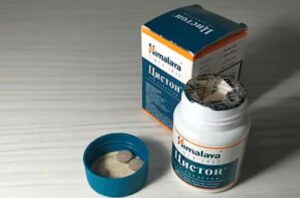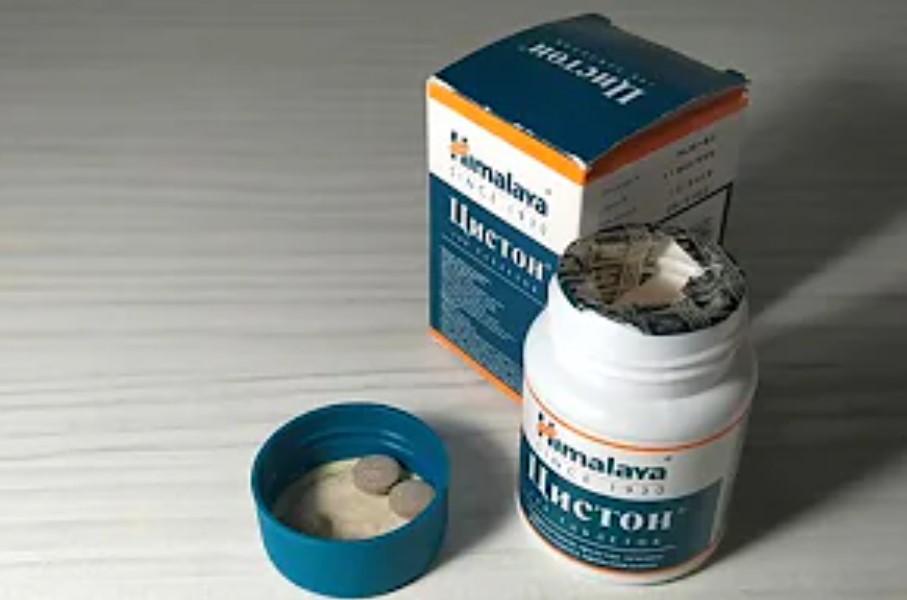Cystone: Uses, Benefits, Dosage, and Side Effects
Cystone is an ayurvedic medicine that has been used for centuries to prevent and treat urinary tract infections (UTIs) and kidney stones. The product contains a blend of natural ingredients that have been proven to be effective in preventing the formation of kidney stones and also in breaking them down. In this ultimate guide, we will explore everything you need to know about Cystone, including its uses, benefits, dosage, side effects, and frequently asked questions (FAQs).
What is Cystone?
Cystone is an herbal supplement that is used to support the health of the urinary system. It is a blend of herbs and minerals that are believed to promote the normal function of the kidneys and bladder.
The ingredients in Cystone may vary depending on the manufacturer but commonly include a combination of herbs such as Shilapushpa (Didymocarpus pedicellata), Pasanabheda (Saxifraga ligulata), Indian madder (Rubia cordifolia), and Small Caltrops (Tribulus terrestris).

Cystone is commonly used to support urinary tract health and may be used to prevent or treat urinary tract infections, kidney stones, and other conditions that affect the urinary system. It is available in the form of tablets, syrups, and drops.
Uses of Cystone
Cystone is an ayurvedic herbal supplement that is primarily used to support urinary tract health.
Here are some of its potential uses:
- Prevents urinary tract infections: Cystone contains ingredients like Indian madder, Shilapushpa, and Pasanabheda, which have antimicrobial properties that can help prevent urinary tract infections (UTIs).
- Dissolves kidney stones: Cystone has been traditionally used to help dissolve kidney stones and prevent the formation of new stones. It contains ingredients like shilapushpa and Varuna, which have diuretic properties and may help flush out the stones from the urinary tract.
- Relieves painful urination: Cystone can help relieve painful urination by reducing inflammation and irritation in the urinary tract. It contains ingredients like gokshura and pashanabheda, which are known for their anti-inflammatory properties.
- Supports prostate health: Cystone may also help support prostate health by reducing inflammation in the prostate gland. This can help alleviate symptoms like frequent urination and difficulty in urination.
- Prevents bladder infections: Cystone’s antimicrobial properties can also help prevent bladder infections by inhibiting the growth of harmful bacteria in the urinary tract.
Benefits of Cystone
Cystone is an Ayurvedic medicine that is commonly used to treat and prevent urinary tract infections (UTIs) and kidney stones.
Here are some of the benefits of Cystone:
- Prevents kidney stone formation: Cystone helps prevent the formation of kidney stones by reducing the concentration of stone-forming substances in the urine and increasing urine output.
- Dissolves kidney stones: Cystone also contains ingredients that help dissolve kidney stones, making them easier to pass out of the body.
- Relieves pain and inflammation: Cystone has anti-inflammatory and analgesic properties that help relieve pain and inflammation associated with UTIs and kidney stones.
- Prevents UTIs: Cystone has antibacterial properties that help prevent UTIs by inhibiting the growth of bacteria that cause these infections.
- Supports urinary tract health: Cystone supports overall urinary tract health by maintaining the pH balance of urine and preventing the deposition of minerals in the urinary tract.
Dosage of Cystone
The recommended dosage of Cystone may vary based on the severity of the condition and the individual’s overall health. It is always recommended to consult a healthcare professional before taking any medication, including Cystone.
Here is a general guideline for the dosage of Cystone:
- For the prevention of kidney stones: The usual recommended dosage of Cystone is 2 tablets twice a day for at least 4-6 months.
- For the treatment of kidney stones: The recommended dosage of Cystone is 2 tablets twice a day until the stones pass out of the body.
- For the treatment of urinary tract infections: The recommended dosage of Cystone is 2 tablets twice a day until the symptoms subside.
Side Effects of Cystone
Cystone is an herbal supplement used to support kidney and urinary tract health. It is generally considered safe to use, but like any medication or supplement, it can have side effects.
Here are some of the reported side effects of Cystone:
- Digestive upset: Some people may experience nausea, stomach pain, diarrhea or constipation.
- Allergic reaction: In rare cases, people may have an allergic reaction to one of the ingredients in Cystone, which may include swelling of the face or throat, difficulty breathing, or rash.
- Low blood sugar: Cystone may lower blood sugar levels in people with diabetes, so caution is advised.
- Interaction with other medications: Cystone may interact with other medications, so it is important to talk to your doctor or pharmacist before taking Cystone if you are taking any other medications.
- Dehydration: Cystone may increase urine output, which can lead to dehydration if you are not drinking enough fluids.
Frequently Asked Questions (FAQs) About Cystone
Q: What is Cystone?
A: Cystone is an Ayurvedic herbal supplement that is marketed as a natural remedy for kidney stones and other urinary tract disorders.
Q: What are the active ingredients in Cystone?
A: Cystone contains a blend of several Ayurvedic herbs, including Shilapushpa (Didymocarpus pedicellata), Pasanabheda (Saxifraga Ligulata), Indian madder (Rubia cordifolia), Small Caltrops (Gokshura) and other ingredients.
Q: What is Cystone used for?
A: Cystone is used to help prevent and treat kidney stones and other urinary tract disorders, such as urinary tract infections and bladder infections.
Q: How does Cystone work?
A: Cystone works by reducing the formation of calcium and oxalate crystals, which are the main components of kidney stones. It also helps to relieve pain and inflammation in the urinary tract and promotes normal urine flow.
Q: How should I take Cystone?
A: The recommended dose of Cystone is usually two tablets taken twice a day, after meals. It is important to follow the instructions on the packaging or as advised by your healthcare provider.
Q: Are there any side effects of taking Cystone?
A: Cystone is generally safe and well-tolerated, but some people may experience minor gastrointestinal disturbances such as nausea or diarrhoea. If you experience any severe side effects, stop taking Cystone and seek medical attention.
Q: Can I take Cystone if I am pregnant or breastfeeding?
A: It is recommended to consult with your healthcare provider before taking Cystone if you are pregnant or breastfeeding.
Q: Can Cystone be taken with other medications?
A: Cystone is generally safe to take with other medications, but it is always recommended to consult with your healthcare provider before taking any new medication or supplement.
Q: How long does it take for Cystone to work?
A: The time it takes for Cystone to work may vary depending on the individual and the severity of the condition. Some people may see improvement within a few days, while others may take several weeks to experience the benefits.
Q: Is Cystone available over the counter?
A: Yes, Cystone is available over-the-counter in many countries. However, it is always recommended to consult with your healthcare provider before taking any new medication or supplement.
In summary, Cystone is an Ayurvedic herbal supplement that is commonly used for the prevention and treatment of kidney stones and other urinary tract disorders. It works by reducing the formation of calcium and oxalate crystals and promoting normal urine flow. Cystone is generally safe and well-tolerated, but it is important to follow the recommended dosage and to consult with a healthcare provider before taking it. While it is available over-the-counter in many countries, it is always recommended to seek professional medical advice before starting any new medication or supplement.
References
- Sharma A, Shankar A, Tyagi A, et al. A review on Cystone: an ayurvedic formulation for urinary tract infections and stone disorders. J Chem Pharm Res. 2011;3(2):665-674.
- Patel N, Kedia N, Kulkarni A, Shah S. A study on Cystone and its clinical efficacy in urolithiasis. Indian J Res Pharm Biotechnol. 2014;2(1):339-342.
- Sandhu SS, Shahi SK. Ayurvedic medicines for the treatment of urinary tract infections and kidney stones: a review. J Chem Pharm Res. 2015;7(10):1055-1059.
- Cystone [product label]. Himalaya Drug Company. Accessed May 10, 2023. https://himalayawellness.in/products/pharmaceuticals/cystone
- Ramesh D, Kumari CS, Niveditha SM, et al. Clinical efficacy of Cystone syrup in urolithiasis – a randomized controlled trial. Ayu. 2015;36(2):162-166. doi:10.4103/0974-8520.175542
- Prasad L, Singh P, Singh DD. Ayurvedic concept of urolithiasis and its management with Cystone: a review. Int J Ayurvedic Med. 2012;3(1):10-17.
- Ansari SH, Ali M. Cystone, a polyherbal ayurvedic preparation: a review. Der Pharm Lett. 2011;3(4):189-197.
- Sharma P, Patel T, Patel R, et al. Evaluation of safety and efficacy of Cystone syrup in management of various urinary tract disorders – a prospective study. Int J Ayurveda Pharma Res. 2014;2(7):39-45.
- Srivastava S, Gupta YK. A review of Cystone: a polyherbal ayurvedic preparation. Indian J Pharm Sci. 2012;74(6):571-578. doi:10.4103/0250-474X.110581
- Rayburn J, Christensen D, Loewe L, et al. Herbal medicines in pregnancy and lactation: an evidence-based approach. Evidence-based Obstetrics and Gynecology. 2005;7(4):249-271. doi:10.1016/j.ebobgyn.2005.07.004
- Sharma P, Sankhla S, Sharma A, et al. Effectiveness of Cystone® tablets and syrup in urinary tract infections and urolithiasis: a review. Indian J Tradit Knowl. 2017;16(2):295-303.
- Biswas TK, Hazra J, Roy P, et al. Evaluation of the antidiarrhoeal activity of Cystone and the probable mechanisms of action. Phytother Res. 2002;16(7):642-645. doi:10.1002/ptr.934
- Habbu PV, Shastry RA, Mahadevan KM, et al. Hepatoprotective and antioxidant effect of Cystone, a polyherbal ayurvedic formulation. Pharmacologyonline. 2007;2:528-536.
- Pareek A, Suthar M, Rathore GS, et al. Cystone, a herbomineral preparation, inhibits calcium oxalate crystal growth in vitro. Evidence-based Complement Altern Med. 2005;2(4):499-507. doi:10.1093/ecam/neh112






